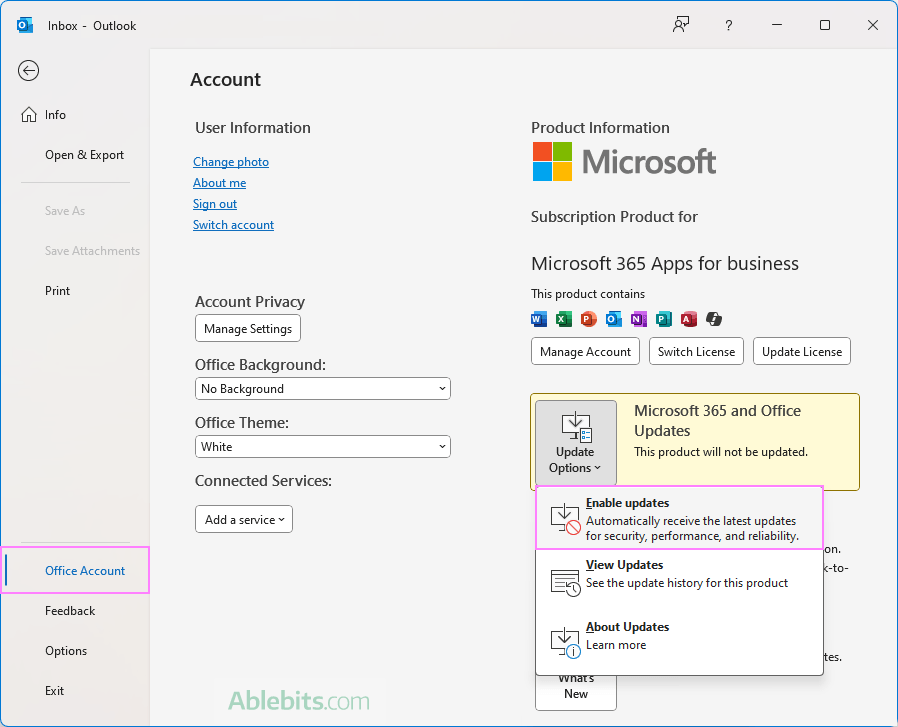
How to Properly Measure Yourself in 2025: Smart Tips for Accurate Results
In an era where self-awareness and personal growth are paramount, learning how to measure yourself accurately is essential. Whether you're assessing your strengths, tracking your progress, or setting personal goals, applying effective self-assessment methods can significantly impact your personal development journey. This article delves into various strategies, tools, and insights to facilitate your self-evaluation process. By employing these techniques, you can enhance your self-discovery processes, define success indicators, and monitor your personal growth metrics effectively.

We will explore self-evaluation techniques, tracking personal development methods, and how to evaluate life changes. You'll also discover the importance of keeping feedback loops and why personal growth metrics matter. Through careful analysis and smart application of these tactics, you will gain a clearer vision of your life journey, facilitating better decision-making and enhancing your path toward success.
Essential Self-Assessment Techniques for 2025
Now that we understand the importance of self-measurement, we can explore the various methodologies to accurately gauge your progress. Effective self-assessment techniques encompass both qualitative and quantitative measures that provide a comprehensive view of your personal growth.
1. Utilizing Self-Reflection Practices
Self-reflection practices are an integral part of understanding your motivations and behaviors. Engaging in reflective journaling allows you to document your thoughts, emotions, and decisions, creating a concrete record to analyze over time. Consider dedicating a few minutes daily or weekly to reflect on your progress, thoughts, and feelings. This method promotes self-awareness and helps in assessing emotional well-being—key indicators of personal performance.
2. Implementing Performance Tracking Tools
Another effective method for self-measurement involves using various performance tracking tools. There are apps and platforms designed to help you set benchmarks and assess your performance against desired goals. For instance, productivity assessment tools can illustrate how well you're managing your time and tasks, with features to track achievements and setbacks.
3. Structured Self-Evaluation Forms
Employing self-evaluation forms can facilitate organized assessments of your strengths and weaknesses. These forms encourage you to rate different aspects of your life—be it personal, professional, or emotional. Utilizing a personal SWOT analysis can provide a holistic view, enabling you to identify opportunities for growth and areas needing improvement.
4. Goal-Setting Principles for Success
Incorporating goal-setting principles is critical for personal progress. Identify SMART goals—Specific, Measurable, Achievable, Relevant, and Time-bound—to create clear objectives. Establishing these goals gives you clear parameters to measure success and helps in recognizing personal achievements, maintaining motivation levels, and establishing accountability.
5. Feedback Loops for Continuous Improvement
Feedback loops can greatly enhance your self-assessment journey by providing external perspectives on your progress. Consider seeking peer feedback methods, wherein trusted friends or family can review your goals and achievements. This practice encourages accountability and can shine a light on blind spots that you may not have recognized in your self-analysis.
With these foundational self-assessment techniques laid out, it's essential to transition into applying them effectively for tracking personal development.
Effective Ways to Track Personal Development
Tracking personal development requires an understanding of the methods of self-analysis and the ability to adapt them over time. Consistent evaluation can help you identify growth patterns, assess your skills, and gauge your motivation levels.
1. Measuring Progress through Checklists
Creating checklists for personal development activities provides a visual representation of your accomplishments. Consistently updating your checklist allows you to quantify achievements, giving you a sense of completion and motivation. Consider including both long-term and short-term goals on your list for a balanced overview of what you’ve achieved.
2. Implementing Self-Rating Systems
A self-rating system can be a powerful tool in your personal analytics arsenal. Rate yourself on a scale, perhaps 1 to 10, across various attributes such as skills, emotional resilience, or life satisfaction. This method not only quantifies your current standing but also creates benchmarks for future assessments.
3. Constructing Vision Boards
Vision boards serve as a powerful visualization tool for personal growth. Create a board representing your goals, dreams, and aspirations. This assembly of images and quotes can serve as daily motivation and a reminder of your ambitions. Periodically reviewing your vision board will reinforce your goals and illustrate your growth over time.
4. Reflective Practices for Deeper Insights
Incorporating reflective practices into your routine will ensure you assess not only what you’ve accomplished but also how you’ve felt throughout your journey. Engage in observational self-evaluation techniques, assessing how your emotions correlate with your achievements. By doing so, you’ll deepen your understanding of personal motivation and what drives your efforts.
5. Establishing Accountability Partners
Establishing accountability partners can provide an external support system that encourages constant progress towards your self-improvement goals. Sharing your goals with a friend or mentor can help create a feedback loop, offering you necessary perspectives and motivating you to stay on track.
As we dive deeper into understanding personal evaluations, it’s essential to address how measuring skills plays a crucial role in your development.
Measuring Skills for Personal Growth
Measuring your skills accurately is fundamental for extensive personal analysis. By focusing on your competencies, you can identify areas of strength and those that require improvement, allowing you to make informed decisions on your personal development paths.
1. Competency Measurements for Effective Self-Appraisal
Competency measurements can help you assess your strengths effectively. Create a skills matrix to evaluate your competencies across various domains, assigning levels of proficiency in each area. This approach will provide clarity regarding where your skills align with personal and professional goals, which can enhance your self-perception analysis.
2. Engaging in Self-Competitions
Self-competitions can serve as a motivating factor for skill improvement. Set challenges against your past self by determining specific benchmarks to surpass. Document your results to foster a spirit of healthy competition with yourself, which can be instrumental in tracking your progress and achievements over time.
3. Adopting Behavioral Metrics for Progress Tracking
Behavioral metrics are valuable indicators of personal growth. Observe behavioral changes over time to recognize patterns that signify improvement. For example, monitor how your reactions to stress and challenges evolve. Documenting these changes can provide significant insights into personal development and resilience.
4. Candid Self-Feedback for Realistic Insights
Candid self-feedback must accompany personal evaluations. Whether through journaling or active conversations with yourself, being honest about your performance can help you maintain clarity regarding your growth journey. Acknowledge successes and shortcomings alike—this balanced view fosters personal growth and enhanced self-efficacy measurement.
5. Techniques for Self-Improvement
Compile a collection of self-improvement techniques tailored to your unique requirements. From engaging in new hobbies to attending workshops, finding innovative ways to enhance your skills ensures that your personal advancement remains dynamic and responsive to your visions of success.
Incorporating these strategies lays a comprehensive foundation for assessing your emotional well-being as a marker of personal growth.
Assessing Emotional Well-Being
Measuring emotional well-being is a crucial aspect of personal evaluation and can dramatically affect your overall quality of life. By understanding how your emotions influence various life areas, you enhance your chance of achieving personal goals.
1. Emotional Intelligence Self-Assessment
Engaging in an emotional intelligence self-assessment allows you to gauge your emotional regulation and expressiveness. Test yourself on factors such as empathy, self-awareness, and relationship skills to create a clearer picture of your emotional landscape. Use results as a map to navigate your emotional growth effectively.
2. Life Satisfaction Assessment Metrics
Creating life satisfaction assessment metrics can illuminate areas requiring focus. Rate your satisfaction level in major life domains, such as career, relationships, and health. This pragmatic approach provides a ranked view of life satisfaction, guiding you to set goals for improvement where needed.
3. Identifying Stress and Resilience Indicators
Recognizing stress and resilience indicators plays a pivotal role in emotional assessment. Regularly noting how you respond to stressors and gauging your resilience can inform your self-monitoring practices. Understanding these factors helps illustrate your emotional well-being status during various life challenges.
4. Journaling for Emotional Awareness
Journaling serves as a crucial technique for emotional awareness. Document your feelings, writing prompts, or themes that resonate deeply with you. Engaging in habitual journaling will enhance your emotional introspection capabilities, creating a richer self-discovery process that ties your emotional states to your goals.
5. Seeking Feedback for Emotional Alignment
Feedback loops become vital when assessing emotional well-being. Encourage friends and family to provide insights on your emotional expressions and interpersonal interactions. Their perspectives can often reveal blind spots and foster deeper self-awareness about how you present emotionally to others.
With emotional well-being properly set in perspective, we now transition into the significance of measuring motivation levels in achieving your objectives.
Measuring Motivation Levels for Goal Achievement
Understanding your motivation levels is critical to ensuring progress toward achieving your personal and professional goals. By analyzing how motivated you feel in various pursuits, you can tailor your approach to enhance accountability and engagement.
1. Goal-Oriented Performance Indicators
Establishing goal-oriented performance indicators allows you to track your motivation levels effectively. Create criteria that measure how enthusiastically you pursue your goals, such as milestones achieved or effort levels. By assessing this metric, you can adjust your strategies to enhance your motivation when encountering challenges.
2. Self-Reflection Methods to Gauge Drive
Incorporating self-reflection methods into your personal analytics can offer insights into what drives your passion. Regularly assess which activities energize and inspire you; take note of your experiences and feelings concerning your pursuits.
3. Creating Accountability Mechanisms
Implementing accountability mechanisms will bolster your motivation levels. Share your goals with friends or mentors who will hold you accountable and serve as support systems throughout your journey. This sense of communal commitment can motivate you to stay focused on goals and finish tasks diligently.
4. Tracking Progress for Motivation Reinforcement
Consistent progress tracking can reinforce your motivation. Celebrate milestones and recognize achievements as they occur to keep your enthusiasm alive. Acknowledge how far you've come and utilize this reflection to inspire future efforts.
5. Personal Rewards for Achievements
Establishing a system of personal rewards can enhance your motivation and commitment to goals. After achieving specific targets, reward yourself with something meaningful. These incentives can create positive reinforcement loops, keeping you engaged in your personal improvement journey.

Measuring motivation effectively is essential in your journey of self-discovery and personal growth. It's vital to integrate self-feedback and workplace strategies continually to ensure a well-rounded evaluation of personal performance.
Q&A: Common Questions on Measuring Yourself
Q1: What are the best personal assessment strategies?
A1: Effective personal assessment strategies include using self-reflection practices, structured evaluation forms, performance tracking tools, and implementing comprehensive feedback loops.
Q2: How often should I measure my progress?
A2: It’s recommended to measure your progress regularly—either monthly or quarterly—to maintain awareness of your goals and to adjust strategies as necessary.
Q3: Can peer feedback really enhance my self-evaluation?
A3: Yes, peer feedback offers diverse perspectives on your progress, helping identify blind spots and providing a supportive environment for personal growth.
Q4: How can I maintain motivation when assessing my personal growth?
A4: Utilizing accountability mechanisms, celebrating milestones, and tracking your progress consistently are effective ways to sustain motivation during your growth journey.
Q5: What tools are best for self-evaluation?
A5: Tools such as goal tracking apps, structured evaluation forms, and behavioral metrics can enhance your self-evaluation process—ensuring that you achieve your personal growth objectives.
In conclusion, mastering how to measure yourself involves continuous engagement with self-assessment methodologies. By employing these smart tips for accurate results, you will be better equipped to navigate your personal growth journey while maximizing your self-discovery processes.